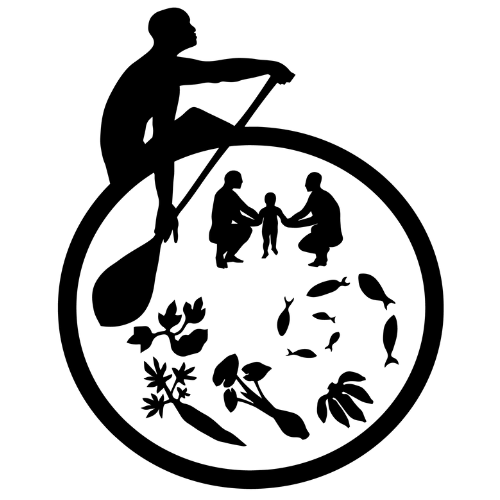Message from the CHL Director
- The CHL Program is a collaborative effort across various institutions in the Pacific. We would like the CHL newsletter to reflect this nature and have asked our Lead Site Investigators to write the opening message to every other CHL News. Dr. Don Vargo, from American Samoa Community College in Pago, American Samoa, leads off the new rotation. Thanks, Don!
- Dr. Rachel Novotny
Talofa from American Samoa
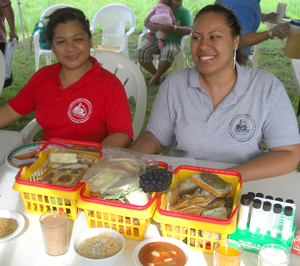
When CHL Director Rachel Novotny suggested that Lead Site Co-Investigators have the opportunity to preface subsequent CHL News, I was pleased to inaugurate this by expressing my gratitude toward CHL. Like many of my colleagues at the other CHL jurisdictions, my small staff and I had been tackling the high prevalence of childhood obesity in isolation with limited results. By engaging staff from the US-Affiliated Pacific Land Grant Institutions, Professor Novotny not only tapped into their combined expertise to address this global epidemic that disproportionately affects the Pacific region; she also forged dynamic partnerships where the lively exchange of ideas generated a deeper understanding of the problem and the means to approach it.
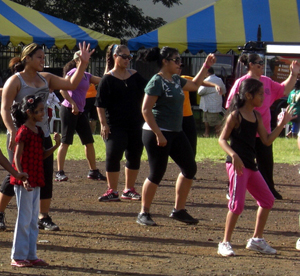
During the past year, several work groups dismantled childhood obesity into its various causes in order to search for evidence-based strategies to counter them. They combed the published literature for articles of high quality research and scrutinized them for their adaptability in the region. Each jurisdiction capitalized on the knowledge and insight of well-informed, experienced, and committed members of its Local Advisory Committee (LAC). Each also held in-depth meetings with four communities to gather their opinions and to gauge their attitudes. We are now assembling these disparate pieces into a cohesive set of actions, or “interventions”, designed to empower stakeholders to direct this effort themselves. This autumn we will take the first step toward testing the fruits of our past year’s labors. By developing and nurturing these partnerships among Pacific institutions, by soliciting advice from local experts, and by engaging parents, teachers, and leaders in our communities, CHL establishes a firm foundation for attacking this seemingly intractable problem. CHL’s success will have a profound effect on the quality of life of the most vulnerable segment of the world’s most at-risk populations. Therefore, my colleagues and I thank Professor Novotny for the opportunity of being part of this notable effort.
Alaska
CHL Alaska
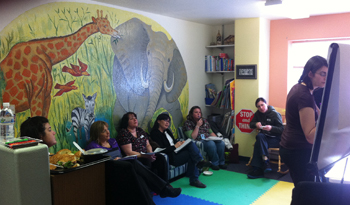
CHL Alaska staff conducted community meetings with parents, preschool teachers, and community leaders in Kenai, Alaska, during February 2012, with the help of the staff of the Kenaitze Indian Tribe Kuya Qyut’anen Early Childhood Center. Participants at these meetings discussed many of the same healthy living issues for young families mentioned at our earlier Alaska community meetings in Wasilla, Anchorage, and Fairbanks. These include great opportunities in each area (like spectacular natural settings for recreation and strong traditions of local food growing and gathering) as well as significant challenges (like our long, cold winters that make it difficult to get young kids outside and communities that are less than pedestrian friendly). At all our meetings, participants identified more family education in healthy living, particularly gardening and healthy cooking, as the greatest need in combating childhood obesity in Alaska communities. We thank all 107 participants who took the time to come to our community meetings and shared their thoughts about healthy living for young children with us.
In addition to the community meetings and the resulting data analysis and report, CHL Alaska staff has been busy gathering information about topics like food access points and costs, physical activity access points and costs, and other economic data about our communities as part of developing appropriate tools for use in the inventory process.
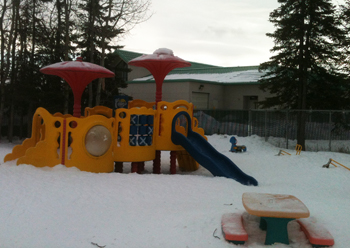
Time has also been invested into documenting the economic climate experienced by the parents of young children in Alaska. Often, pursuit of a healthy lifestyle appears difficult given competing use of time and resources. Site-specific information regarding food, housing, health and childcare, transportation, and other necessities were tabulated with the objective of determining the wages necessary to maintain a reasonable standard of living. Parents often are faced with difficult trade-offs between wage earning and cost of childcare, meal preparation and quality daily family time. These decisions are important determinants of health outcomes for children and factor into locally driven health promotion programs.
Commonwealth of the Northern Mariana Islands
CHL Commonwealth of the Northern Mariana Islands
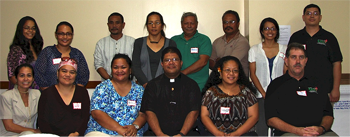
The CNMI CHL Team welcomed community members with strong ties to the villages of Oleai, San Jose, San Antonio, Koblerville, San Roque, Tanapag, and Kagman to discuss the findings from the Community Meetings held in Fall 2011. Clergy, community leaders, and parents discussed opportunities and challenges that CHL personnel should be aware of when working with the villages. Meetings helped identify factors that promote/hinder healthy living in the community, capitalize on mechanisms that promote eating right and being physically active, identify successful mechanisms for change and health promotion that work, and identify resources and assets that promote better eating and physical activity.
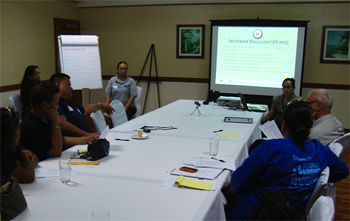
By the end of the meeting, participants were able to identify situations related to healthy living in the community. In addition, participants prioritized opportunities for healthy eating and physical activity change in the community and suggested policy avenues for change at the community level. Finally, participants identified the resources available in the community that could be used to build on or create new programs to promote healthy living for 2-5 year olds.
Freely Associated States of Micronesia
CHL Freely Associated States
Dr. Jonathan Deenik has been meeting with stakeholders from across the Freely Associated States of Micronesia (FAS): the Federated States of Micronesia, the Republic of the Marshall Islands, and the Republic of Palau. Local Advisory committees are forming and planning. CHL FAS is actively recruiting staff and students for CHL activity.
Guam
CHL Guam
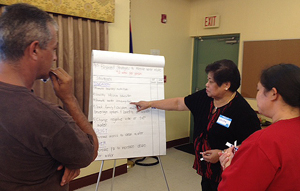
The Guam CHL team continues to build community partnerships to increase optimal health outcomes for children on Guam. Over the last several months, the team transcribed and analyzed data collected through the community meetings held in January 2012. These community meetings resulted in recommended strategies to deliver the overall CHL objectives. These strategies included: education of parents and primary caregivers of preschool children on healthy eating, drinking water and reducing sugar-sweetened beverages, community & home gardening, and partnering with the University of Guam’s Expanded Food and Nutrition Education Program (EFNEP). Additional strategies included increasing the availability and accessibility of healthy food options, promoting physical activity by expanding organized activities to include younger children, addressing infrastructure and safety concerns, policy development that encourages active play and healthy eating, and working with local businesses and restaurants to promote healthy lifestyles.
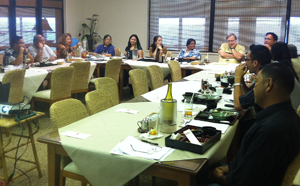
Aside from identifying program strategies, the Guam CHL Program was involved in increasing the skill-sets of its CHL extension associates primarily in food and nutrition concepts and community & home gardening techniques. Two recipients of the CHL training education scholarship were also selected. Candidates will attend the University of Hawaii Nutrition Program in the Fall 2012 in both the doctoral and master’s programs.
Future program plans include conducting a series of face-to-face interviews among key stakeholders in physical fitness and nutrition. The interviews will be conducted to determine community readiness in addressing childhood obesity prevention among the villages selected for the CHL program. In Mid-May, a community feedback meeting will be held to identify “community champions” and to reconnect with participants from the community meetings.
Hawai‘i
CHL Hawaii
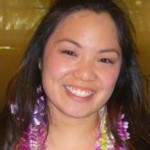
The CHL Project is pleased to announce our two Hawai`i CHL training scholarship awardees – Ashley Morisako and Monica Esquivel. Ashley will be entering the University of Hawai‘i at Manoa, Masters in Public Health, Social and Behavioral Sciences Program. Under the training and mentorship of health professionals, she has conducted studies that analyzed the effect of social behavior on exercising in a college environment, assisted in hypertension research done with the Papakolea community, and helped develop a garden-based pilot curriculum aimed at childhood obesity. Ashley aspires to start a Hawaii-based childhood obesity prevention program, to help children develop a healthy lifestyle for their futures and the future of Hawai‘i.
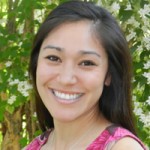
Monica will be entering the University of Hawai‘i at Manoa, PhD in Nutrition Program. She is a Registered Dietitian with clinical experience, working as part of different interdisciplinary teams in a bariatric surgery and weight loss center, cardiac and oncology intensive and critical care hospital, and at the Waianae Coast Comprehensive Health Center, focusing on diabetes, adult and child obesity, and employee wellness. Monica’s goal is to conduct research on the use of health care services and policy changes in preventing and treating childhood obesity and to educate nutrition and dietetic professionals on these same principles.
Congratulations Ashley and Monica! We look forward to working together with you in preventing childhood obesity in the Pacific.
